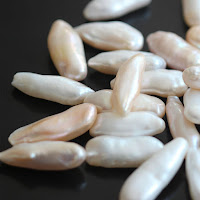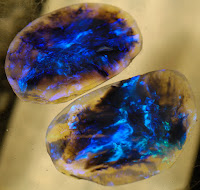Mr. Bends was a zombie, but people tried to not hold it against him.
They also, politely as possible, tried to not hold anything at all against him, as it tended to come away sticky. If you allowed the mucous to dry, he'd hasten to reassure you, it'd brush off with no problem. Learning what the gunk was didn't really help. When he was alive, Mr. Bends would tell his customers, he had an astigmatism, also known as a squint, and he had to wear special glasses to adjust how his eyes focused. These days he could adjust the wandering eye manually. This was better, he said. He also appreciated not having all of his finger-pads anymore. Some were still attached, and of course that was good, but occasionally it was useful in his line of work to have a good dry poking tool at hand.
He used to be a warlock’s apprentice, as could be expected of anyone named “Pugnacity Bends,” but soon grew out of that phase when everyone who was in the tower at the time of the explosion got zombified. It was a long story, and one he’d wave off, saying it was too long ago for any most parts to still matter. As he’d sometimes joke, horgling phlegm around in his throat, the only parts that mattered to him were the ones he was personally still attached to. Most people assumed this was a lie, but let him keep the full story to himself all the same. The citizens of Blue Holly’s Wrath tended to do that, on the whole. Everyone you’ll ever meet has a full story, after all, but the people in Blue Holly’s Wrath had full chronicles, usually written, sung, or performed by other people. Even a question like “so where are you from?” could fill an afternoon with its answer.
Besides, there was a lot about Mr. Bends that people didn’t want to know. What happened to the food he clearly still ate, for example. What the goop he painted himself with every morning was, before he went out into the sun. Where that third ear came from and why did he dig in it when he was lying? Questions followed the man around like eager dogs on tightly held leashes. In place of questions being answered, you generally just got rumours. Never anything too malicious, naturally. Nothing inherently evil would last too long in town without being found out and expelled. Just.. gross things, and it was honestly hard to try to make Mr. Bends grosser than he was on a day to day basis.
But he had a skill, and that skill was priceless, especially in a town like Blue Holly’s Wrath. He didn’t hang a shingle - it’d be too hard to explain what was being bought and sold in his walk-in-closet of an apartment with the same universally understood pictograms with which one could, for example, advertise “shoes repaired” or “hair cuts here” or even, in the case of Tigor Sjembairn, “symbiant extraction.” Instead there was a cabochon amethyst gem set into a silver bezel inlaid into the structure of his door, and a dull light writhed within it like tortured eels whenever certain people - prospective sellers - passed by. It would always draw a glance from them but almost no one else, and any questions they asked about it to a resident would only get the response, “Go visit him.” If they were kind, people would add that it was better to visit Mr. Bends on a cooler day, and in a well-ventilated area if possible.
It’s easier to start with what he sold, rather than what he bought. What he sold were the tiny, clattering objects he walked down the street with. He did not bother to close the cardboard shoebox held carefully in both hands, and at his slow, limping gait, it was easy for anyone walking alongside him to shop through the wares. It wasn’t uncommon for him to sell out before he even got to the armory, especially since everyone knew that Menchalk doubled Mr. Bends’ prices if he had to store the things in his shop for more than a day. It looked like cheap, fake, costume jewelry. In places that had plastic, they thought it looked like plastic. People that had only gotten as far as resin thought it might be resin. Once properly glossed up with sealant, of course, each piece would have the shine of a real gem, but they never quite felt like rocks under the finger.
“What does this one do?” is a question Mr. Bends did get a lot, as people keeping pace beside him pointed gingerly into the open box at a cluster of oily black beads of onyx.
“It’s good for making the bearer stay awake,” he’d answer, not bothering to adjust his wandering eye as it rheumatically swiveled on its own to watch the person’s reaction, the other staying on his plodding path so that he didn’t step in anything that he’d regret.
“Mmm, no good there. What about this one?” they might press, of an irregular piece that looked like a pearlized slug on a chain..
“Elicits great sympathy from anyone around the bearer. Less likely to punch ya,” he might add, and, after a rattling laugh that’d restore his personal space, “Unless they’re really wanting to.”
Mr. Bends didn’t wear any of his own jewels. He sold them to people who already knew what they were, even if they didn’t know what they did. He used the money to pay his rent, to pay for the jars of goop he needed, to pay for his occasional meal, and to pay for the town’s single and exceptionally brave launderer to wash his clothes. His tiny shed of an apartment was kept clean and scoured, and had in it only a cot, one bucket of goop, one empty bucket, a thin wooden chair, a bright lantern and some copper mirrors, and a spool of thread from which protruded two long needles, one curved, and one straight. We’ll get to those in a minute. Everyone knew it was worthless to rob Mr. Bends, even if you were brave enough to fish around in a zombie’s pockets or risk getting trapped in a tiny room with him when he was annoyed. It wasn’t that kind of town anyway.
But finally, about what he bought. A prospective customer, gradually lured in by the cabochon on the door, would announce some variant of “I was told to come see you,” and Mr. Bends would simply say, “I know.”
At the meeting place, selected always buy the supplier, Mr. Bends would sit down and speak quietly and earnestly with the stranger for some time, and onlookers would witness, invariably, the speaker become enraged. It showed up in different ways. Sometimes someone would try to lay hands on Mr. Bends, and, aside from finding him distressingly slippery, would find him to be as strong as steel and well defended by his neighbors. Sometimes they’d shout, and everyone would learn quite a lot about the stranger before the night was over. Sometimes they’d cry. Almost always they’d leave the meeting outright, and Mr. Bends would patiently shuffle back to his home to wait.
They’d come back.
This time, they’d go in there with him.
Inside, they’d sit wherever they were most comfortable, and Mr. Bends would carefully ask questions of them, securing, as best he could, irrefutably and fully informed consent. Then, he’d turn the lamp’s light up brighter, pick up the straight needle, and thread it.
This was where Mr. Bends stopped being a joke.
Mr. Bends drew your curses out of you. People, as it turns out, generate all sorts of curses all on their own. Sins - which are really nothing but a sort of self-imposed curse could be drawn out of the hands on the head of Mr. Bends’ needle, and solidify in coloured chunks of emotions and intentions. Sloth tended to make the softest sort of metallic structure that ran like mercury and took days to settle into a shape. Anger, a popular one in town, could be coaxed out of the palms in shards like jasper. More esoteric concepts like loneliness might pull out from someone’s chest, beading up along the following thread like dewdrop diamonds, hollow and sparkling. A curse placed on someone by another was always more difficult to extract, and on those evenings Mr. Bends would request one of the town medics be present. A curse of pain might be hiding up in someone’s sinus and needed tissues to be cut before he could safely lance it and drain it out. Death curses tended to hide under the rib cage, and sometimes their extraction brought on their bearer’s death anyway. If successfully drawn up and out, they tended to form beautiful rubies, so dark they almost looked black, but could be easily cut into all sorts of different shapes and sizes before they solidified. His payment for this was the curse itself. You couldn’t keep it, and he would not directly sell it to you. There were ways around this, of course, but it was his own way of trying to break whatever karmic cycle got you into your mess to begin with.
Once the supplier, now no longer a stranger, left, Mr. Bends would spend the next few days nurturing the naked curse, calming it with strange whispers and prods of his fingers, and eventually get it to settle in a shape that could be reset, resold, and reused. After all, all those enchanted gems in empowered armor and weapons had to come from somewhere, right?
And so it was hard for him to settle on a shingle. He was the town therapist, a specialist doctor, and a gemcutter all in one, and when you really get down to it that’s hard to convey in just a little pictogram.


No comments:
Post a Comment